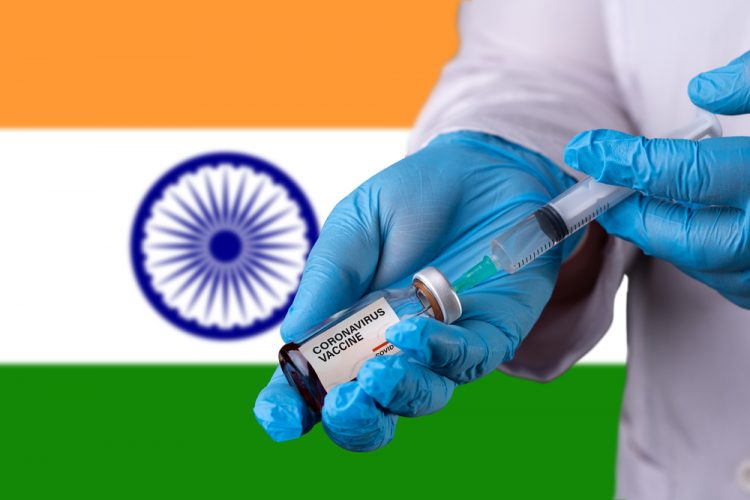As covid stuck and in the absence of any vaccine or therapeutic solutions, India had to lock down the nation in line with rest of the world. This allowed the Governments to focus on solution instead managing of the crisis. After a long wait, we finally got two Indian vaccine manufacturers ready to roll out the jabs for healthcare workers first and later for rest of the public in phases. Bharat Biotech’s Covaxin was a completely indigenous technology developed jointly with our premier agency, Indian Council of Medical Research (ICMR). This vaccine contains an inactivated virus which does not infect people but triggers the immune mechanism for effective defence. With Covishield of Serum Institute, India was able to vaccinate majority of its eligible population in the short time. Drug Controlled General of India, our regulatory agency, worked overtime to evaluate the data on the safety parameters to allow the production and release of the vaccines. The trust in domestic technology, manufacturing ecosystem and our regulatory regime was demonstrated by the Prime Minister Narendra Modi when he decided to get Covaxin shot for himself and was among the first few users of the Indian vaccine. Indian manufacturers, not only served domestic needs, but also ensured its availability to many other countries. We demonstrated the true Indian philosophy of “Vasudhaiva Kutumbakam” which means world is one family and in the testing time, we are altogether. Developed nations were able to bring Covid vaccines ahead of us. Their Governments offered to invest extensively in the pre-clinical development and clinical trials by the large manufacturers like Pfizer and Moderna. In-addition, they executed procurement contracts with their manufacturers during the vaccine development stage and pre-booked the significant part of their manufacturing capacities. India’s efforts to get some of these vaccines could not materialise as availability was restricted and some of these producers expected liability waiver in exchange of providing the access to their products. Despite tremendous pressure to open the economy and some of the political stakeholders seeking imports of the vaccine, the Indian Government placed its bet on make-in-India instead of accepting conditional import of the vaccines. Prime Minister Modi himself visited both the manufacturing sites of Serum Institute in Pune and Bharat Biotech in Hyderabad to be convinced of their technologies, scale and capability to meet our requirements. Both companies came forward and lived to the expectations. They, not only ensured adequate vaccine quantities for Indians but also to many other nations across the world. Confident of their technologies and in the national interest, Indian manufacturers’ priority was adequate supplies without pre-conditions attached. Russia also pitched in with Sputnik vaccine though the volume was not very significant. Vaccine manufacturing is not new to India. However, the development process to get the new vaccine is long and is spread over many years. Then the question is how many of these corporations were able to develop, produce and distribute them so quickly? The answer lies in the fact that the healthcare industry, scientific community and government regulators worked in tandem keeping Covid vaccine as their topmost priority. In addition to the vaccine manufacturers, all other healthcare stakeholders also worked with the same zeal to ensure right therapeutic solutions are also made available to treat millions of impacted people. Recently, questions have been raised by the media on the efficacy of the vaccines specifically one from Pfizer. Does any of the vaccines provide 100% safety to the users or stop the spread of the virus? Not really. Vaccines for Covid or any other disease help the body to develop immunity or the ability to fight the pathogen in the event of an infection. Vaccines do not stop the spread of the disease. They slow down the spread by breaking the cycle. Relative efficacy of the vaccine depends on the individual health conditions, age and whether the person has comorbidities. Efficacy may be as low as 60-70%. Irrespective of their efficacy, we must acknowledge that the vaccines have effectively protected billions of people in many countries, brought their economies back on track and saved millions from dying of starvation. Are we out of the woods? Not yet. Virus continues to mutate and infect the people. So, covid vaccines will remain important and critical for the times to come. We need to actively track the behaviour of the virus and be ahead of the curve to avoid similar situations for this or coming generations. Therapies are equally important to treat the infection. We need an enabling institutional environment where public and private institutions commit resources towards the research and development dedicated to new drug discovery. At the same time, new technologies need to be defended by strong patent regime. Disease scenario is changing quickly and so is the need to keep ahead.
Rakesh K Chitkara has led public policy practice for major US corporations including Abbott Lab, General Electric, Dow Chemical and Monsanto.







